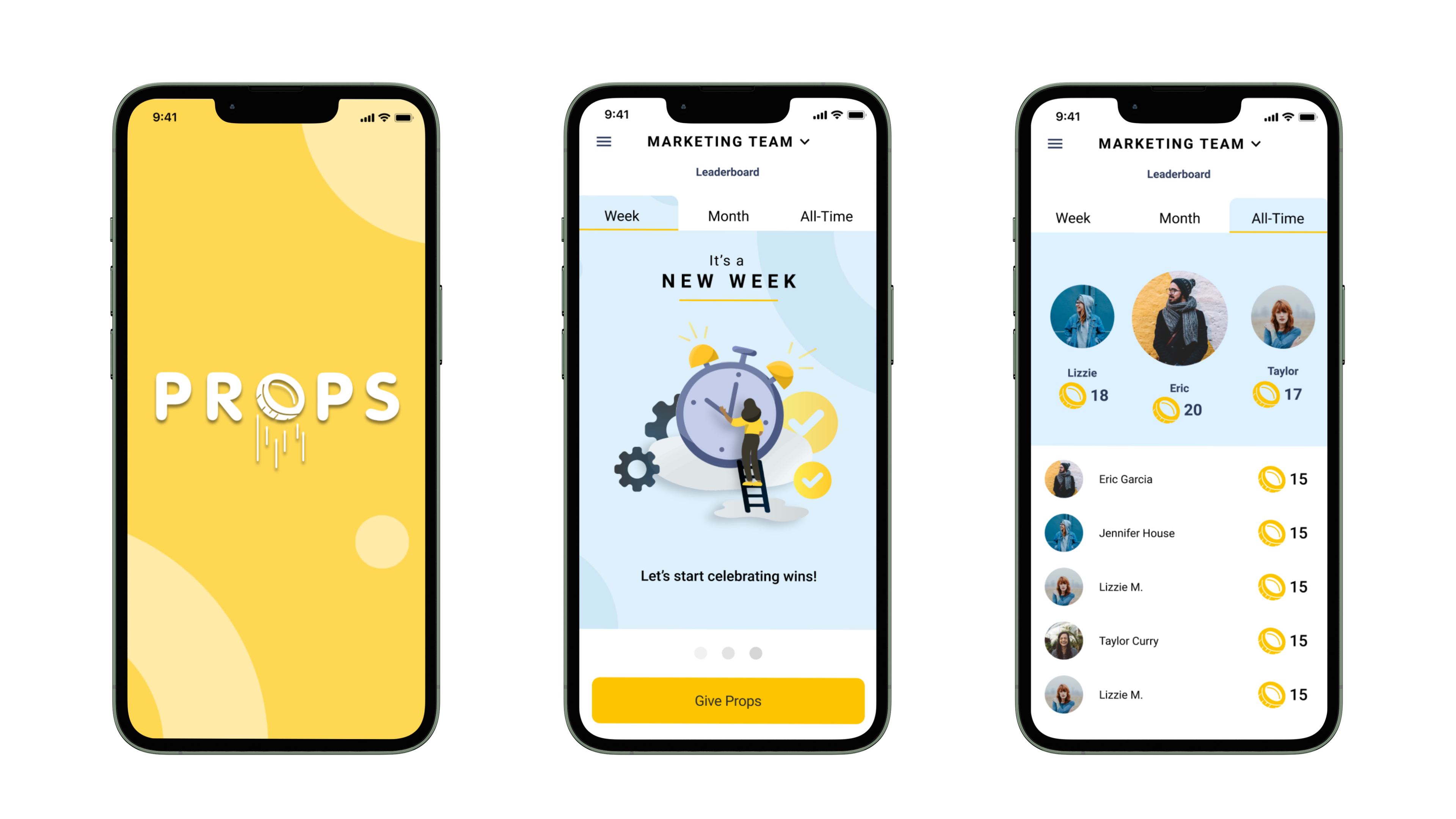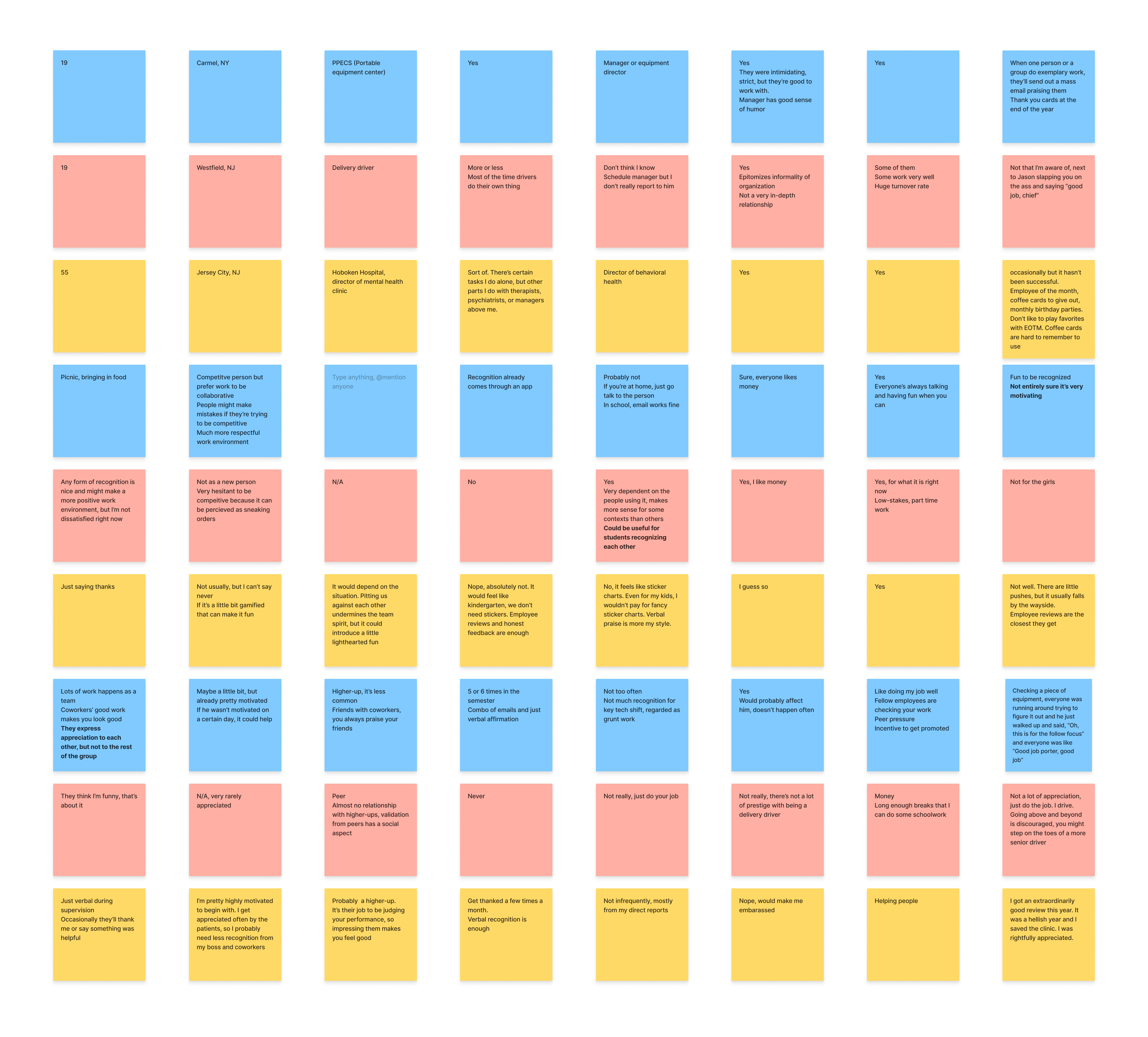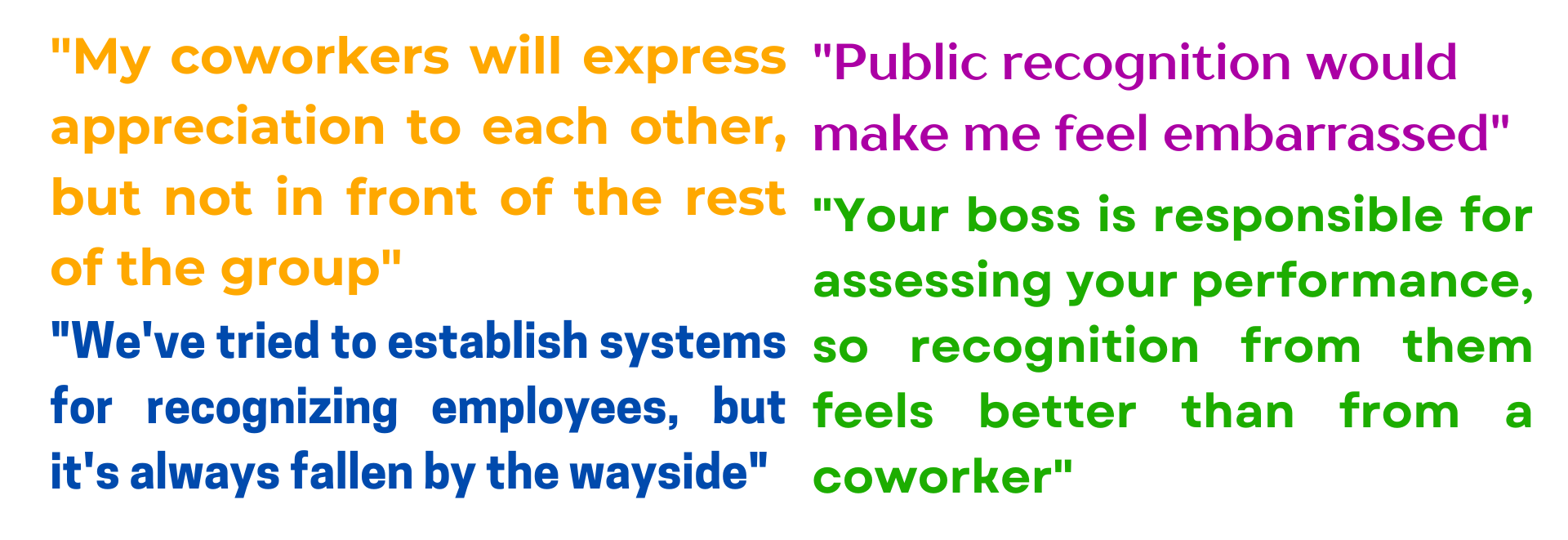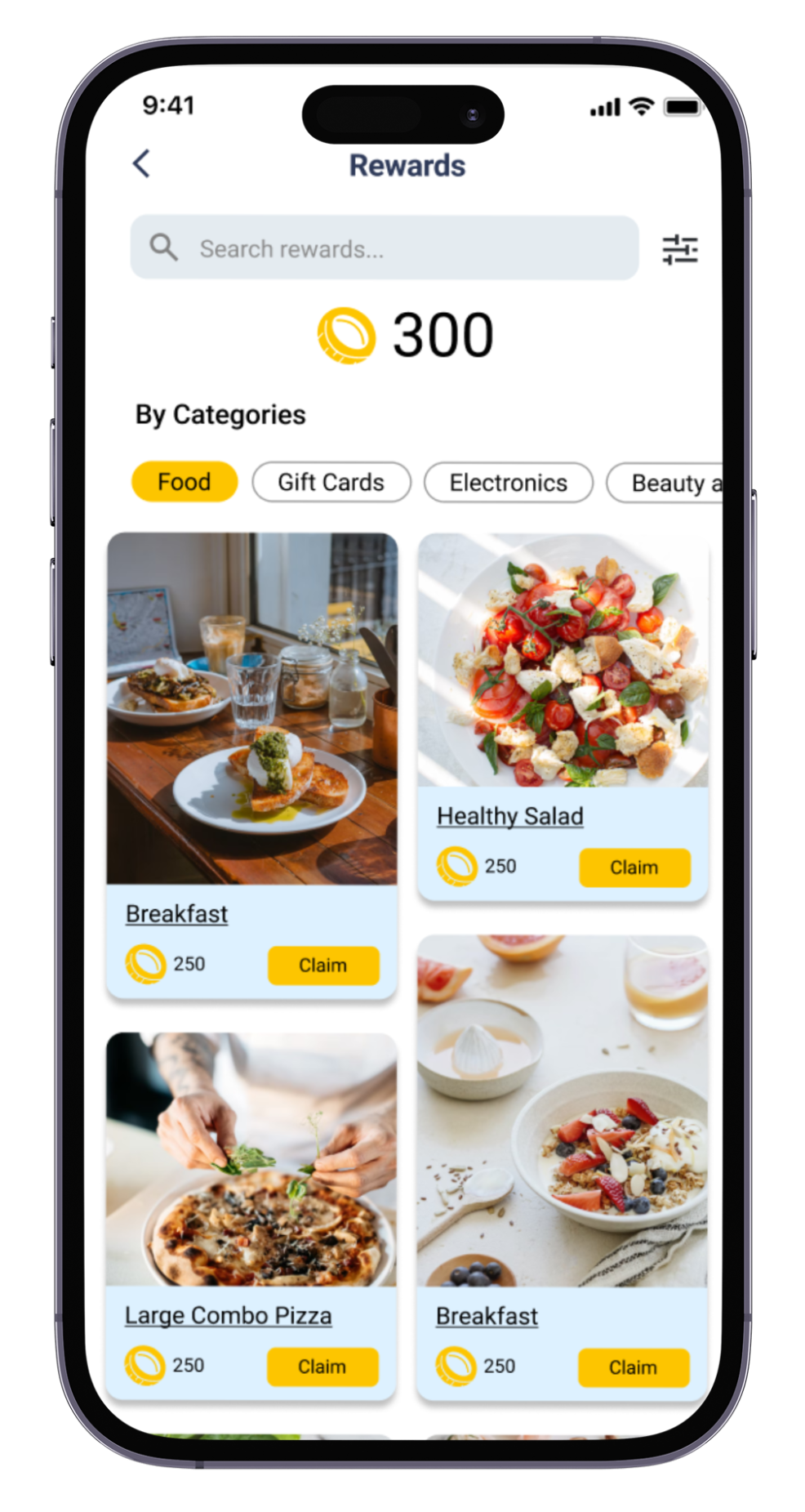Props! User Research Study
What makes employees happy with their workplace, and what could be the place of a rewards app in increasing job satifaction?


In the spring of 2022, I worked with the software startup Sesto Labs as a UX research intern.
My team worked on developing Props, a mobile app that would let workplace team members express appreciation by "giving props" to their coworkers. Employers could give props to their employees, peers could give props to each other, and it would be public to all team members through activity feeds and leaderboards.
The Props app works on a model of increasing employee satisfaction through public displays of recognition. In my research I sought to validate that model by studying the relationship between recognition, appreciation, and motivation in employees.

The study was centered on qualitative interviews.
The participant pool consisted of five participants, both male and female, ranging from 18-55 in age. All participants were employed in some form of a team structure.
Some of the participants were in entry-level positions, and some were managers with direct reports.
Each interview was conducted in person and recorded digitally, then transcribed and coded by theme. The results were organized, key quotes were pulled out, and then findings and suggestions were compiled to report back to the team.
I would have liked to expand the participant pool, but I was constrained by both time and limited budget to recruit participants.



This study suggests that Props has great potential in filling the nice of peer-to-peer appreciation. It could also have great value to managers and HR teams in their employee review process, providing quantitative records of their employees' best moments.
Not every organization will benefit from an app like Props, but if it's designed to be fun, gamified, and rewarding to use, it can easily find an audience and could greatly impact employee motivation.
Thanks for stopping by! Let's connect 👋
CONTACT ME 📩
rachelgellman02@gmail.com